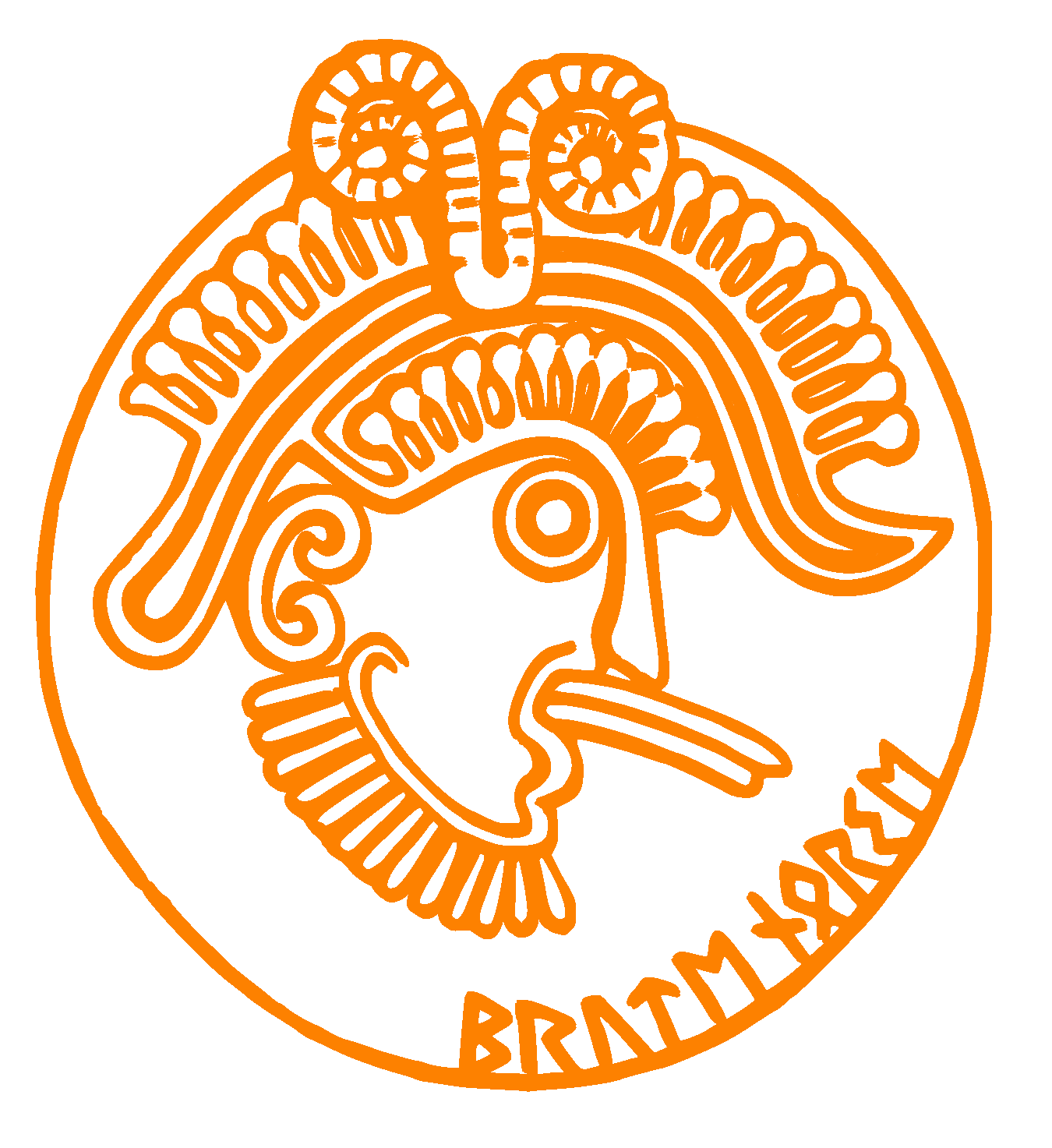Ninjas of the North: Royal assassins in medieval Norway
/On the fifth day of Christmas in the year 1181, an angry, drunken mob took to arms and stormed the palace of king Magnús Erlingsson in Bergen, Norway. The assailants were called guests, but they were not visitors. The title of guest was actually a rank within the royal guard. And they served a function comparable to that of secret police or special forces units. As one source puts it, they lent their name from the fact that they “pay visits to the homes of many men, though it is not always friendly.” In short, the guests often served as spies and assassins doing the king's dirty work.
Now they were rebelling, killing servants and vandalizing royal property, breaking their way into the hall, door by door, and catching the king's retainers unarmed and off-guard, who relied on a few armed guardsmen and hot stones from the fire to keep their assailants at bay. Before long the town guard rushed to their aid and the attack was finally suppressed. The king seized the conspirators in the ensuing aftermath, executing the worst aggressors and made examples of the rest by amputating feet and hands. The reason for the uprising? The king had merely served them beer and confined them to drink in a separate building, reserving mead and the best quarters for the higher ranks of his bodyguard. But who were these “guests”, exactly?
Knock knock, who's there?
The key to understanding their title lies in the society they belonged to. As mentioned in the King's Mirror – a 13th century book of noble customs, the guests were named because of their habit of stalking the king's enemies. It is easy forgotten in the relative peace of the 21th century that visitors aren't always wanted, and medieval Scandinavia could certainly be a volatile and dangerous place. The warrior ethos of the Viking era was still alive and well, and strangers should well be treated with equal measures of hospitality and caution.
The guests were oath-sworn members of the king's retinue, or hirð in Old Norse. But unlike his other retainers, who were nobles, the guests were low-born. They earned only half a hirdman's pay, and though they were considered second in rank to them, they were formally above some of the lesser ranks of the retinue. However, noble birth meant that these could hope to rise in status, something that the low-born guests could not. They were held separate and, apart from Christmas day and Easter day, were not allowed to eat and drink at the king's table like the noble retainers.
The hirðskrá – literally the Book of the Retinue – was a law code compiled in the 1270's regulating the Norwegian royal guard. It states a great deal about the guests, who seemed to serve as the king's eyes and ears around the country. Often they were sent to complete specific clandestine tasks. In practice this could be anything from assasinating opponents to delivering letters. It is stated that the king should refrain from sending the guests out on impossible missions, as well as those that would «displease God». Meaning there must have been some ethical concern associated with their function, at least officially, which would serve to explain why the guests could not be nobles. This might also imply that the guests had been involved in past atrocities, and that kings might have been too unscrupulous in their deployment, perhaps even sending them on outright suicide missions. The law code also encouraged the guests to understand, and carefully consider their contracts, as to make sure there were no misunderstandings. They were allowed to question their missions to some degree. Still, the task of the guest was to do the king's bidding, even when the task was grim.
Hrafninn Flýgur (1984), Dir: Hrafn Gunnlaugsson.
For king and country
Judging from the sources, their assignments were as varied as they were dangerous. Ranging from downright political assassination to sabotage, the confiscation of property, kidnapping and espionage. The sagas paint a picture of gritty shock troops with license to kill, going behind enemy lines to exterminate strategic targets, even in the midst of an army, which must have required tremendous military skill. They existed all over the realm, and were required to be on the lookout for any military or political threats to the king. Wherever such enemies were spied, they ought to try and kill them, or so the King's Mirror says.
The Book of the Retinue, however, gives the impression of a more organized force, and being the younger of the two texts, it might point towards a formal development to regulate the guests' behavior more strictly. For example, instead of outright executions, guests should ideally abduct their targets and bring them before a priest to perform their last rites, before ultimately taking them to an executioner. Several accounts reveal that this wasn't always carried out, and many a man's political ambitions must have ended with their guts spilling across the business end of a guest's blade, or dangling from a tree in the forest, as is purported to have been the fate of one particular band of Swedish interlopers.
The guests enjoyed many perks otherwise out of reach to people of low birth. As the king's men they qualified for tax exemption, and crimes against them punished more harshly. They were probably rewarded with properties and special services exclusive to veterans in the king's service. This, along with the brotherly security that came with being part of Norway's elite licensed killers, must have earned them some notoriety.
Loot to kill
Despite being representatives of the king, these professional party crashers didn't always have the best intentions. The aforementioned law code expressly states that the guests couldn't confiscate anything that wasn't directly relevant to their mission. It seems likely that this amendment was a reaction to the guests being a bit too eager to loot and kill. Some thirty years earlier, the King's Mirror claimed that the guests were allowed to keep all the loot they could carry from assassinations (apart from gold, which was forfeited to the king). Such abuse of their position was evidently not acceptable from the 1270's on. Thus we might speculate that guests were using their license to kill to line their pockets.
Like other agents of some majesty's secret service, ill treatment of women is also an issue here. The law code takes special concern for guests on the subject of robberies and women's safety, suggesting a history of sexual assault and larceny within their ranks. All in all, the guests had a reputation for being rowdy and dangerous.
This leads us to the other ethical conundrums of being a contract killer in Norse culture: The guests could only do as they did because they acted on behalf of the highest authority in the country, namely the king. Otherwise, Norse culture frowned upon clandestine activities of any kind, and the deeds of the guests could easily have been condemned as cowardly and unmanly, had they been performed by any other member of society. The mere act of accusing someone of being unmanly was a defamation that could legally get you killed, so this was no small matter. Norwegian society in the 13th century was a transparent one, centered around family ties and a strict code of honor/shame ethics. Between the viking era and the better part of the high middle ages, killing someone was somewhat excusable as long as you openly admitted to it and accepted penalty. Covert killing was, at least in most cases, considered dishonorable, and would qualify a person to outlawry by default. This was effectively a death sentence back then. The fact that guests sometimes had to resort to such methods may explain why this position was reserved for low-born people, as it seems out of step with the chivalric ideals of 13th century nobility. Despite all this, the guests seem to have been highly respected and trusted confidants of the king.
As a guest you might be torching a political opponents house one day and delivering mail the next, with all the immunity of a government agent. Not much has changed in 800 years, has it?
Literature
- Flugeim, Morgan. 2006. Gjestene i kongens hird. Ein samla gjennomgang av deira virke. The Faculty of Humanities: The University of Bergen
- Imsen, Steinar. 2000. Hirdloven til Norges konge og hans håndgangne menn. Riksarkivet: Oslo
- Kongsspegelen. 1976. Translated by Alf Hellevik. Norrøne bokverk. Samlaget: Oslo









